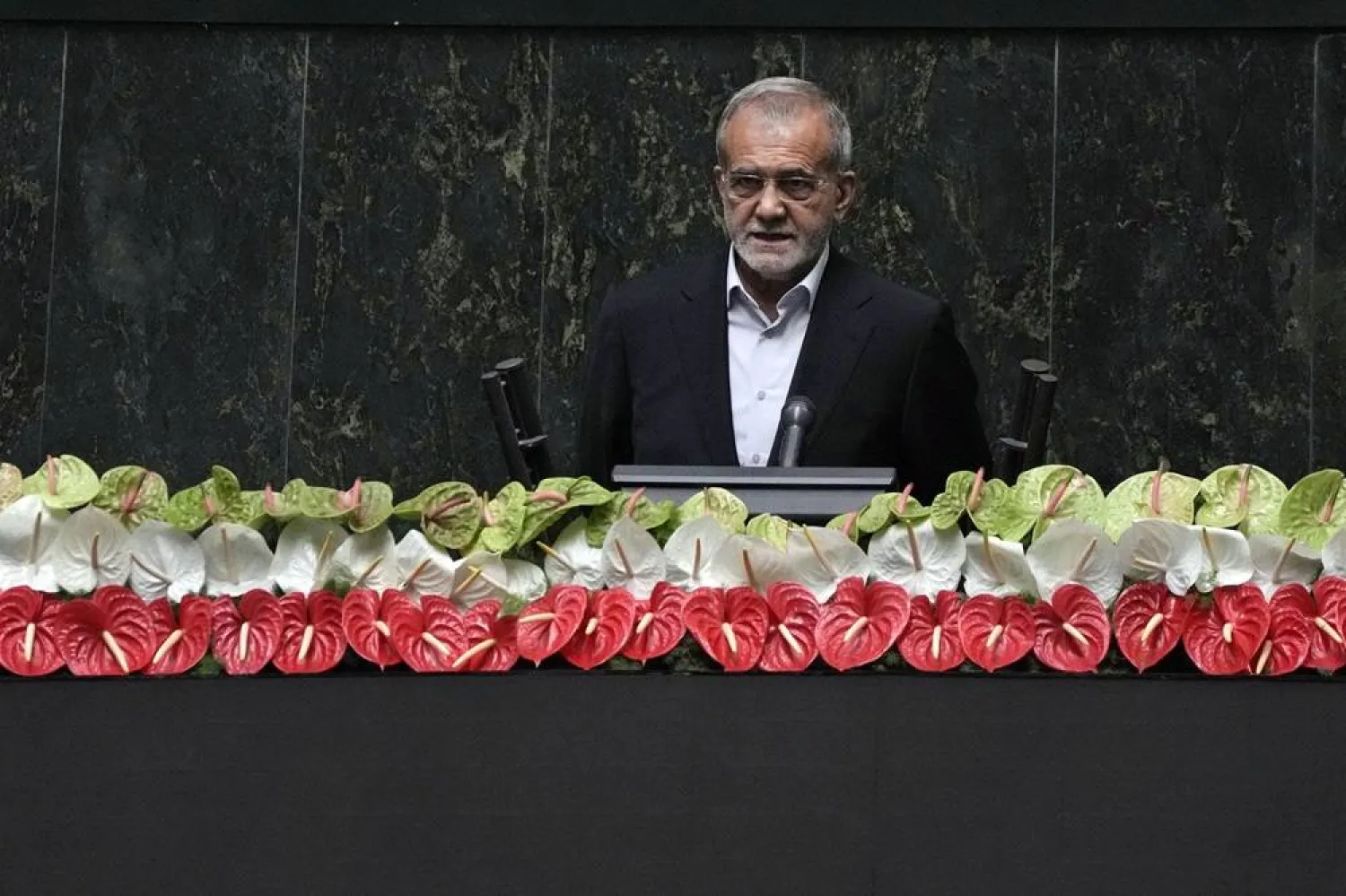Iran swore in the country's new president on Tuesday, with the reformist politician and heart surgeon Masoud Pezeshkian pledging that his administration will keep trying to remove economic sanctions imposed by the West over Tehran's controversial nuclear program.
Pezeshkian delivered a speech after taking his oath in a ceremony at the parliament in Tehran, Iran's capital. He said he considers the normalization of economic relations with the world to be Iran’s inalienable right.
"I will not stop trying to remove the oppressive sanctions," he said. "I am optimistic about the future."
Iran's supreme leader, Ali Khamenei, on Sunday officially endorsed Pezeshkian, urging him to prioritize neighbors, African and Asian nations as well as countries that have "supported and helped" Iran in Tehran’s foreign relations policies.
Pezeshkian, a longtime lawmaker, won the July presidential election after his predecessor Ebrahim Raisi was killed in a May helicopter crash that sparked the early election. He has two weeks to form his Cabinet for a vote of confidence in parliament.
The sanctions have hit Iran's vital oil exports, blocked transactions on international banking networks and spurred inflation, which is running at about 40%. The dollar is being traded for 584,000 Iranian rials, a dramatic plunge for the country's currency.
When the landmark nuclear deal was struck with world powers, the rial traded 32,000 to the dollar. Former President Donald Trump unilaterally withdrew America from the Iran nuclear deal in 2018.
Iran has held indirect talks with the Biden administration, though there’s been no clear progress on constraining Tehran’s nuclear program nor the lifting of economic sanctions. Iran insists its nuclear program is peaceful and geared towards generating electricity and producing radioisotopes to treat cancer patients — not nuclear weapons.
"Pressure and sanctions will not work on the Iranian nation," Pezeshkian said.
Pezeshkian's swearing-in ceremony was attended by representatives from more than 70 countries, as well as Enrique Mora, the European Union coordinator of nuclear talks. Emomali Rahman, Tajikistan’s president, also attended as did Iran's allies from Palestinian militant groups, including Hamas' leader Ismail Haniyeh and Islamic Jihad's Ziyad al Nakhaleh.
Iran has been challenged by the ongoing Israel-Hamas war in the Gaza Strip, and Western fears over Tehran enriching uranium to near-weapons-grade levels with enough of a stockpile to produce several nuclear weapons if it chose.
In April, Iran launched its first-ever direct attack on Israel over the war in Gaza, while militia groups armed by Tehran — such as the Lebanese Hezbollah and Yemen’s Houthi militias — are engaged in the fighting and have escalated their attacks.
In his speech, Pezeshkian spoke in support of Palestinians, saying "Iran demands a word where no Palestinian child’s dreams are buried under the rubble of their home."
"We are seeking a world where the proud people of Palestine are freed from occupation, oppression and imprisonment and genocide," Pezeshkian said.









